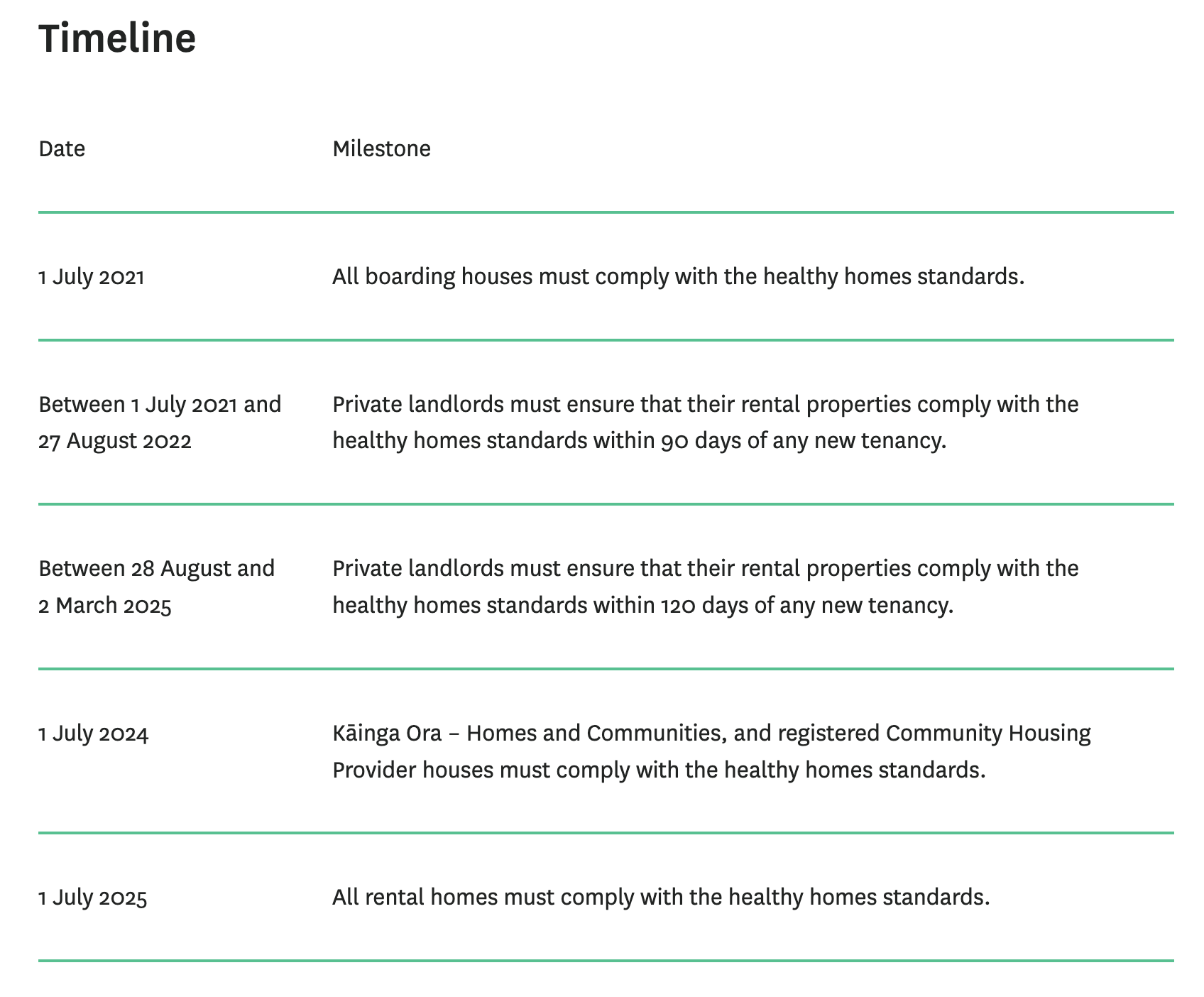New HHS compliance timeframe announced
This morning the government announced an extension to the Healthy Homes Standards (HHS) compliance deadline for all rental properties. The new compliance due dates are:

APIA encourages landlords to comply as soon as possible
We continue to stand by our general recommendation for landlords to comply with the standards as soon as possible. Delayed compliance would almost certainly mean higher material costs (inflation!) and difficulties with the labour bottleneck.
Early compliance can set the scene for a rent increase outside of the 12-month cycle
In appropriate circumstances, early compliance could lead to an s28 rent increase even if the rent had already been increased in the last 12 months (s24). The Tenancy Tribunal is generally unwilling to discourage landlords from bringing their properties up to standard ahead of the deadline. It had accepted early HHS compliance as ‘substantial improvements to the premises’ before ordering a rent increase. The extension arguably has given landlords more time to comply early. It’s a win-win. The tenant gets a healthy home ahead of schedule, and the landlord generates immediate ROI from his HHS spending.
Related: Healthy Homes Standards rules for mixed-used properties
How to achieve an s28 rent increase with early HHS compliance
A checklist to trigger an s28 rent increase for landlords who comply early:
- The tenant must consent to the work.
- Early HHS compliance (wholly or partially) has to create additional value for the premises and be a material benefit to the tenant.
- ‘Value’ refers to the property’s worth to the tenant (i.e. what she would otherwise pay for a comparable rented home before and after the upgrade), not how much the landlord spent on compliance.
- The work is neither ‘general or necessary repairs’ nor related to bringing the property to other existing legal standards (such as the Housing Improvements Regulations).
- Rent can be increased by agreement with the tenant or by a Tribunal order.
The Tribunal adjudications are not explicit as to how early is early enough. Cautiously, we recommend landlords act as soon as possible, leaving little doubt of their proactive approach to HHS.
Related: HHS compliance statement Q6 (and Q7)















Add Comment